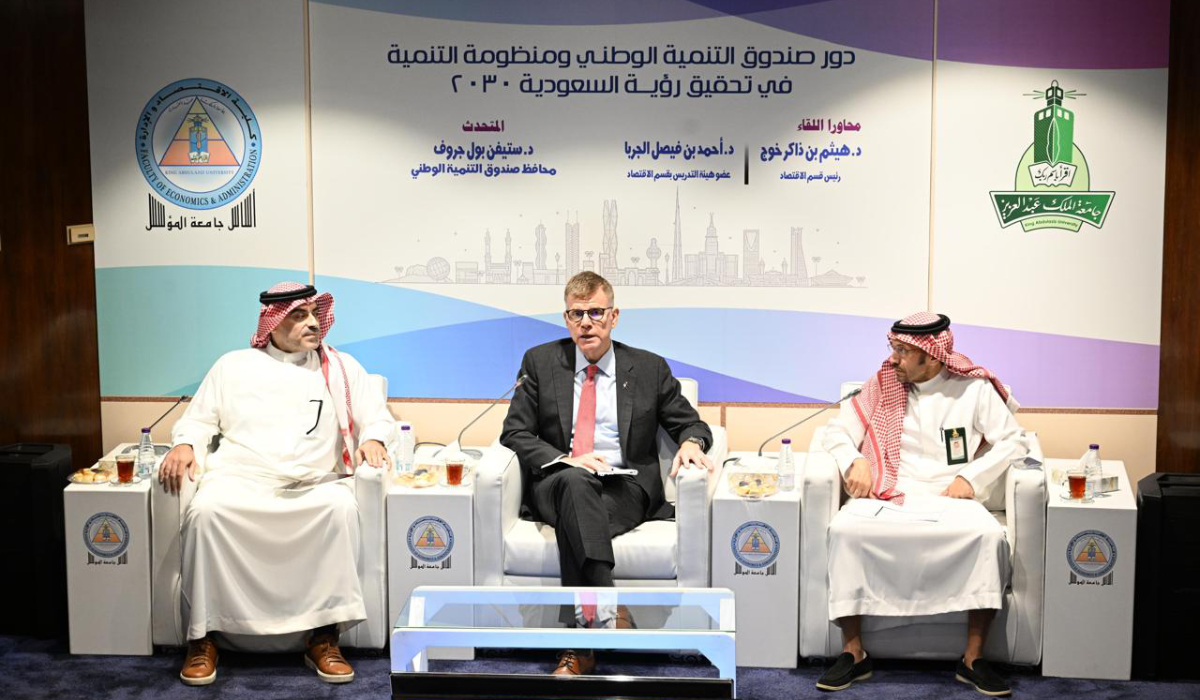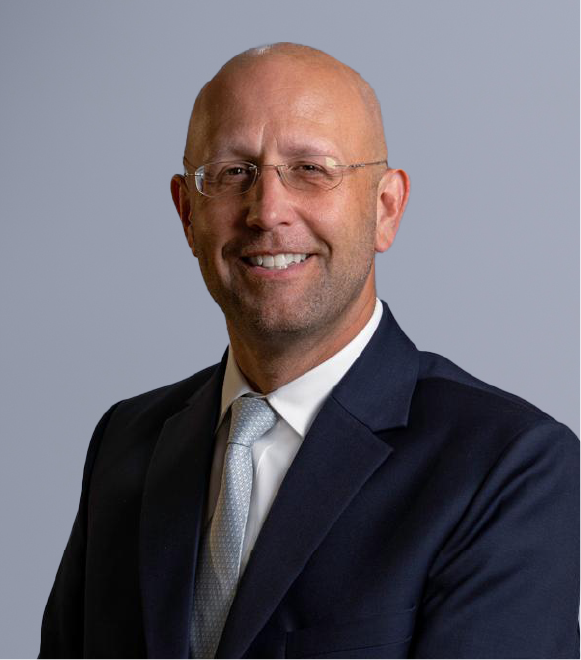DUBAI: Although the Arab world has a long way to go before it achieves gender parity, recent reforms in Saudi Arabia have already transformed women’s participation in the labor force, business and leadership, while promoting economic growth and sustainable development.
The pursuit of gender equality as a way of fostering prosperous economies and a healthy planet is the theme of this year’s International Women’s Day, the UN’s annual day to celebrate the empowerment of women and girls.
“There’s no country on the planet that has taken such dramatic action and where there is such dramatic change for the betterment of women,” Maria Al-Zahrani, a Saudi-American resident of Riyadh who works as a consultant for WeBuild Ventures, told Arab News.
Achieving gender parity and tapping the full potential of women and girls is a fundamental part of the Kingdom’s Vision 2030 social reform and economic diversification plan, launched in 2016 by Crown Prince Mohammed bin Salman.
“Our critics can pontificate all they want, but numbers don’t lie,” said Al-Zahrani. “Women now represent more than 36 percent of the labor force.”

The pursuit of gender equality as a way of fostering prosperous economies and a healthy planet. (Saudi Green Initiative)
In 2019, Saudi Arabia implemented reforms that allowed women to travel abroad independently, to register for marriage or divorce, and apply for official documents without the permission of a male guardian.
Faisal Al-Ibrahim, Saudi Arabia’s minister of economy, said that the Kingdom had consequently witnessed a significant rise in female participation in the private sector.
“Gender equality is a cornerstone of our commitment to sustainable development,” he told the Human Capability Initiative in Riyadh in February. “Increasing female representation is a critical macro-goal supported by a multitude of initiatives.
“Women now hold 20 percent of seats in the Saudi Shoura Council and key positions in ministries and governmental bodies. Twenty-nine percent of middle and senior private sector management positions are held by women, and 45 percent of SMEs in the Kingdom are female-led.”
Marriam Mossalli is a living example of this transformation.
“Women control more than $31.8 trillion in worldwide spending and actually spend more than men daily,” Mossalli, a Saudi entrepreneur and founder of communications agency Niche Arabia, told Arab News.
Mossalli recently launched C-Suite Advisory — a business consultancy that helps start-ups and international firms with investment and Gulf Cooperation Council market entry strategies. She wants to see many more women breaking into business.
“We need more women in leadership positions,” she said. “And that’s why I’m personally investing in female-owned businesses that share similar values, which is why I’ve come on with Powder Beauty — the region’s first dedicated clean beauty platform.”
Basmah Abdulaziz Al-Mayman, Middle East region director for the UN World Tourism Organization, believes the development of the region’s tourism industry in particular has offered women opportunities for economic participation and advancement.

Women now represent more than 36 percent of the labor force. (AFP)
“Although the proportion of women engaged with the tourism sector in the Arab world is still low,” Al-Mayman told Arab News, “there is hope that it will improve, especially that some progress toward gender equality in the sector has been observed, particularly in the public sector where concrete policy actions have begun to bear fruit and the representation of women in leadership roles has increased toward similar levels seen globally.”
In 2020, UNWTO and the Saudi Ministry of Tourism jointly published the Regional Report on Women in Tourism in the Middle East to mark the Saudi G20 presidency.
The report examined opportunities and challenges for women across areas considered key for women’s empowerment: Employment, entrepreneurship, education and training. It also examined leadership, decision- and policy-making, and community.
“Tourism has long been viewed as an engine of women’s economic empowerment more than other sectors in the economy,” Al-Mayman said.
“Tourism can provide more opportunities for women’s participation in the labor force, in entrepreneurship and in women’s leadership. As such, the tourism sector can make important contributions to the achievement of SDG5 on gender equality and women’s empowerment, as well as to the gender-related targets and other sustainable pool areas.”
Al-Mayman said that Arab governments had a crucial role to play “in creating this more equitable world through deliberate change and actions to more inclusively ensure that women and marginalized groups have access to resources, support and opportunity.”
Working toward gender equality is viewed as an essential part of the effort to eliminate poverty, to boost gender-responsive financing, transition to greener economies, and to support female change-makers.

Rana Almimoni, a 30-year-old Saudi motor racing enthusiast, poses for a picture at Dirab motor park, on the outskirts Riyadh. (AFP)
It is important to note however that no country in the world has achieved gender parity, according to the Global Green Growth Initiative. One region that still has quite a way to go is the Middle East and North Africa.
The Arab world has the second-widest gender gap in the world after South Asia, as measured by the Gender Development Index, with women lagging behind in income and labor participation.
As a result of such gender inequalities, women and girls in Arab countries have on average achieved 14.4 percent less than men in measures of human development over the past 20 years.
According to the World Economic Forum’s Global Gender Gap Report 2023, in comparison with other regions, the Middle East and North Africa remains the furthest from parity, with a 62.6 percent parity score.
This represents a 0.9 percentage-point decline in parity since the last edition of the report for the region, based on the constant sample of countries covered since 2006.
INNUMBERS
• 2nd Arab states have the second-widest gender gap in the world. (GDI)
• 131 How many years it will take to achieve global gender parity (WEF).
• <50 percent Women active in the global labor market, compared to 72 percent of men (IMF).
According to the report, the UAE at 71.2 percent, Israel at 70 percent and Bahrain at 66.6 percent have achieved the highest parity in the region, while five countries, led by Bahrain, Kuwait and Qatar, have increased their parity by 0.5 percent or more.
And yet, according to the UN, the region as a whole has progressed at a far slower rate than the global average over the past decade. It says gender inequalities are preventing the Arab world from fulfilling the 17 Sustainable Development Goals of the 2030 Agenda.
Of course, the mission to achieve gender parity goes well beyond the Arab region. It is a major international concern.

A Saudi conductor drives a high-speed train ferrying pilgrims to Makkah. (AFP)
According to the WEF’s Global Gender Gap Report 2023, the global gap has closed by 0.3 percentage points compared to the previous year. Based on this rate of progress, parity will only be achieved in the year 2154 — the same forecast in WEF’s 2022 report.
The little progress that was made was due to improvements in education, with 117 out of 146 indexed countries now having closed at least 95 percent of the gap. The economic participation and opportunity gap also saw progress, closing by 60.1 percent.
However, according to the International Monetary Fund, less than half of women are actively part of the global labor market, compared to 72 percent of men. This has a direct impact on issues such as poverty reduction and nutrition.
A quarter of women and girls worldwide are expected to be moderately or severely food insecure by 2030, according to the UN. If gender gaps in agri-food systems are closed, this could reduce food insecurity and boost global gross domestic product by $1 trillion.
“While there have been encouraging signs of recovery to pre-pandemic levels, women continue to bear the brunt of the current cost-of-living crisis and labor market disruptions,” Saadia Zahidi, WEF managing director, said in the report.
A global economic rebound will require “the full power of creativity and diverse ideas and skills,” she said. “We cannot afford to lose momentum on women’s economic participation and opportunity.”

An employee checks merchandize at a hypermarket in Jeddah. (AFP)
While there is still undoubtedly a long way to go, even for the region’s most proactive nations such as Saudi Arabia, International Women’s Day offers an opportunity to take stock of how far women’s empowerment has come in a relatively short space of time.
Just five years ago, “you would hardly see women working anywhere,” said Al-Zahrani, the Riyadh-based consultant.
“Then all of a sudden they were working at hotels, working in stores at the mall, driving. I never thought I’d be so proud to see women at the grocery store taking customer payments at the checkout counters.
“I’m proud of our leadership and I am proud of what they’ve done for everyone to create a more productive and prosperous future for the country.”






























